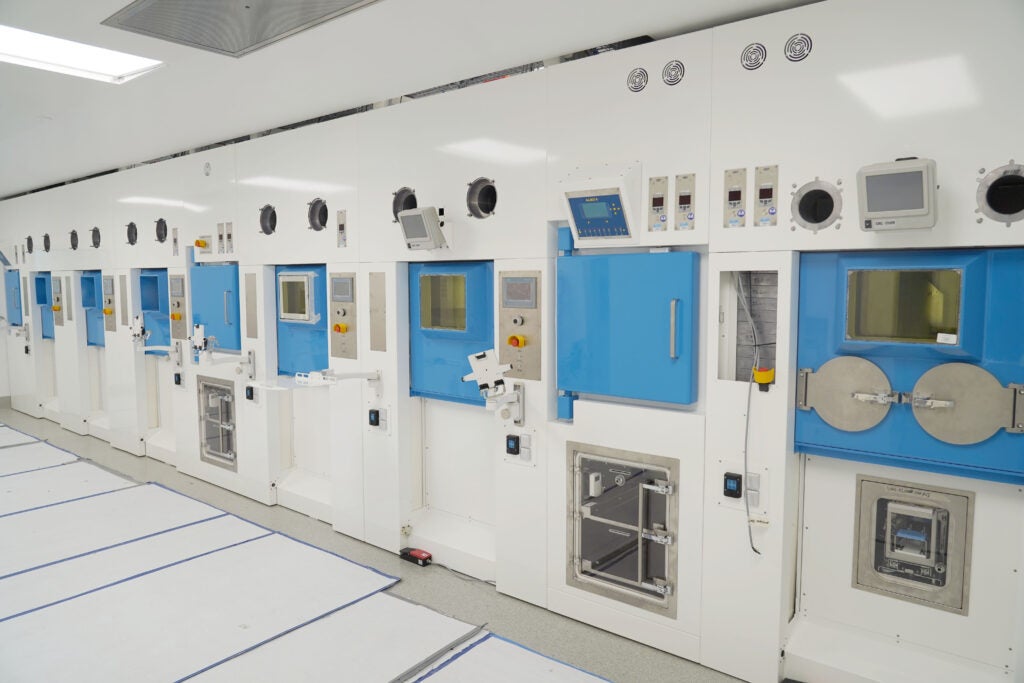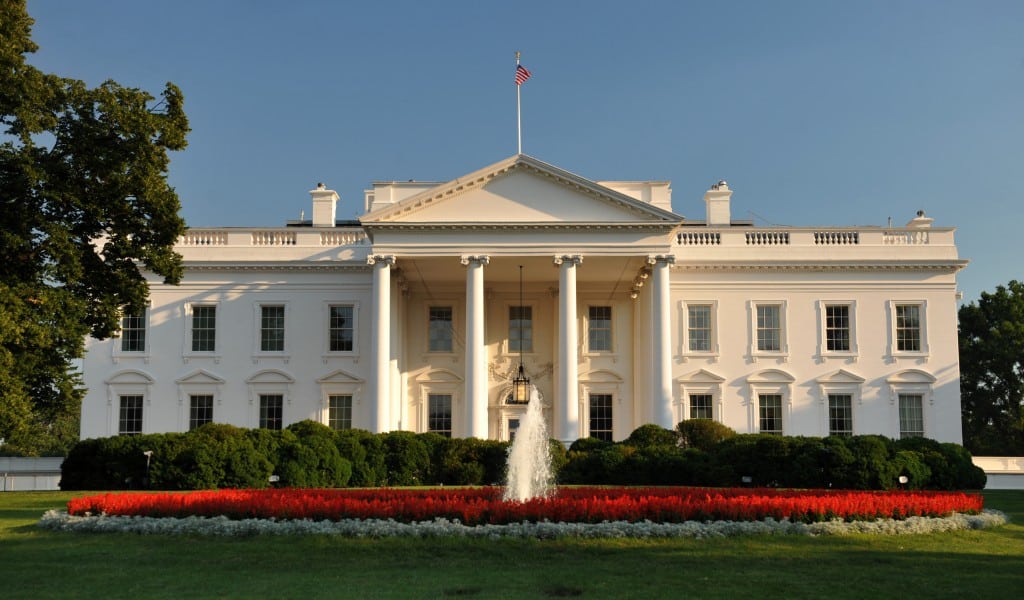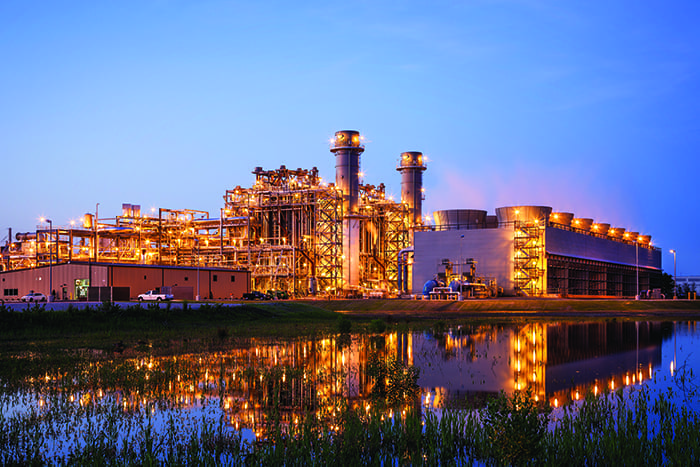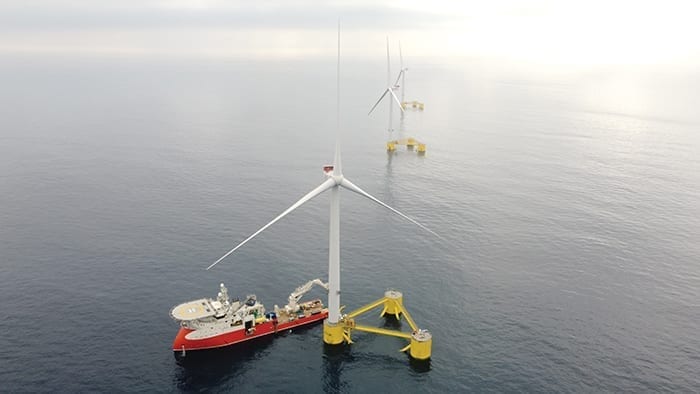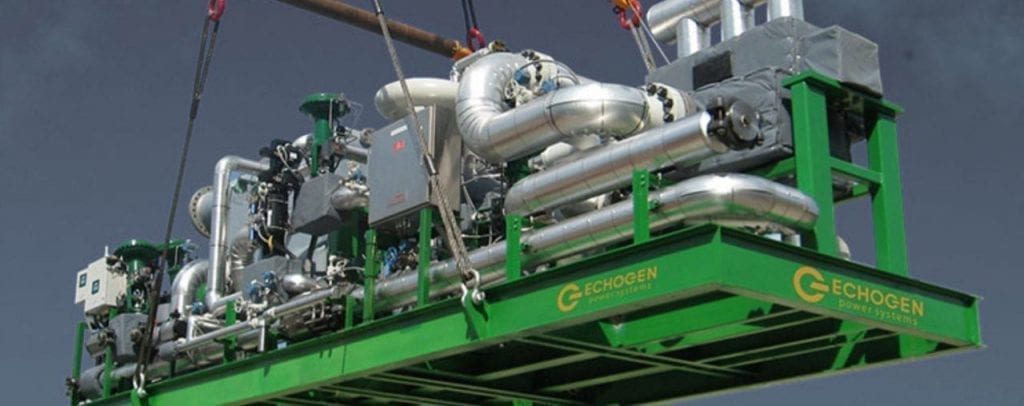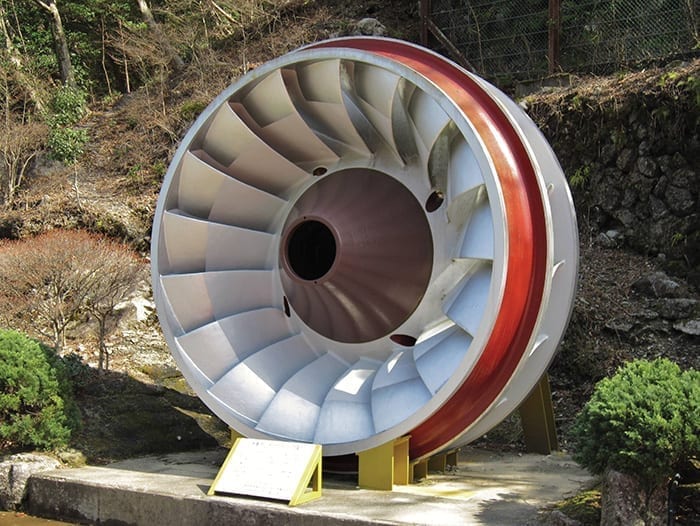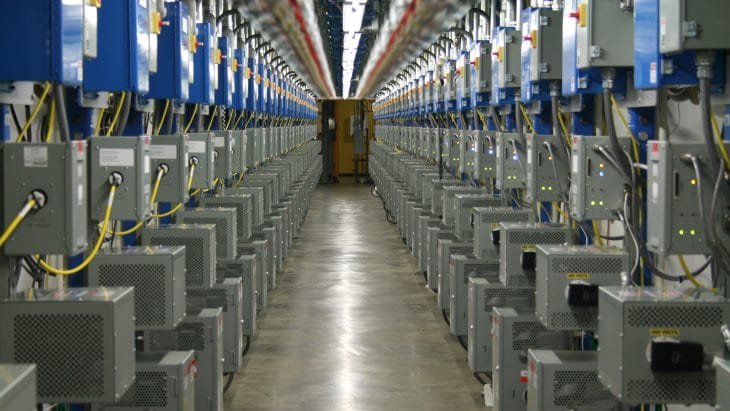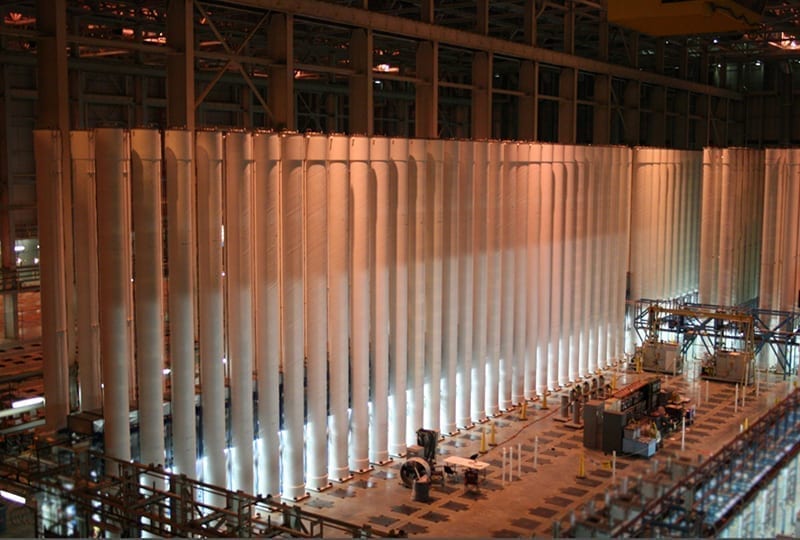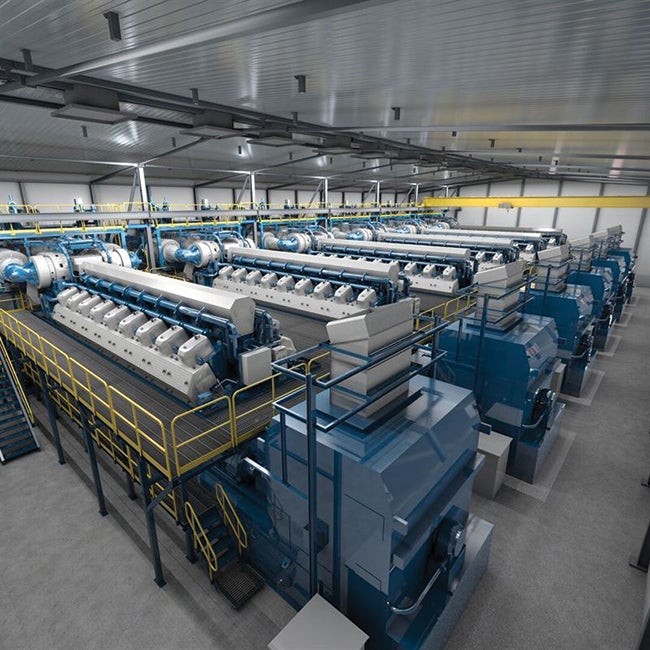The U.S. Nuclear Regulatory Commission (NRC) has given its green light to a license amendment filed by Centrus Energy Corp., approving the nuclear fuel and services firm’s efforts to demonstrate High-Assay, Low-Enriched Uranium (HALEU) production at its enrichment facility in Piketon, Ohio.
The approval marks a “major milestone” in Centrus’s $115 million, cost-shared contract with the Department of Energy (DOE) to build a cascade of 16 AC100M centrifuges and demonstrate production of the advanced nuclear fuel material, noted Centrus President and CEO Daniel Poneman. Granted its new license amendment on June 14, the American Centrifuge Plant plant now becomes the only U.S. facility licensed to enrich uranium up to 20% uranium-235 (U-235). And while the NRC only granted its license until May 2022—when the DOE contract ends—it paves the way for Centrus to pursue HALEU production by early next year, the company said.
| Learn more about gas centrifuge enrichment and HALEU production in POWER’s March 2021 in-depth look at Centrus’s process here: “Centrus on Track to Produce HALEU Nuclear Fuel Material by Early 2022” |
As POWER has reported, HALEU—a nuclear fuel material that is enriched to a higher degree (of between 5% and 20%) in the fissile isotope U-235—is not commercially available in the U.S. but it may be required in the future to fuel advanced reactors—including some microreactors (many smaller than 10 MW), high-temperature gas reactors in the 100-MW to 200-MW range, and salt reactors. HALEU could also be used in existing light water reactors, such as with accident tolerant fuels, as well as in military microreactor applications. https://www.powermag.com/big-boost-for-framatomes-accident-tolerant-nuclear-fuel/
Experts note that because HALEU is enriched higher than the 4% to 5% level typically used in existing reactors, it may provide more power per volume than conventional reactors, and its efficiency allows for smaller plant sizes. It also promises longer core life and a higher burn-up rate of nuclear waste.
According to Centrus, nine out of the 10 reactor designs selected by the DOE last year for its Advanced Reactor Demonstration Program (ARDP) are expected to operate on HALEU. The ARDP awards include a commitment to support construction to two demonstration reactors over the next seven years, as as well as to support continued development of eight other reactor designs.
The NRC’s approval of the license amendment follows its June 2020 acceptance of Centrus’s application to amend its license to permit the production of HALEU of up to 20% U-235 enrichment. Centrus already holds an existing NRC license to produce fuel enriched up to 10% at the Piketon facility, where Centrus (then known as U.S. Enrichment Corp. before a post-bankruptcy rebrand) successfully demonstrated its advanced U.S. gas centrifuge uranium enrichment technology in 2013 as part of a three-year DOE project that ended in 2016.
“We are currently on schedule to begin production of modest quantities of HALEU in early 2022,” the company said in financial documents in May. “We expect to complete our performance under the HALEU contract in the first quarter of 2022.”
Centrus has said that when the demonstration program wraps up and federal funding ends in 2022, its goal is “to continue production and scale up the facility in modular fashion” as demand for HALEU grows in the commercial and government sectors. “At this time, however, there is no assurance that sufficient government or commercial funding or demand for material will be timely secured to permit the continued operation or expansion of the demonstration cascade,” it cautioned. Commercial uptake of HALEU must also overcome several technical, regulatory, and economic hurdles before more advanced fuels and reactors can come to the market, it has said.
“If funding or contract for the output are not secured, we would need to terminate operation of the demonstration cascade or continue to operate the cascade at a loss,” it said in May. But if “sufficient funding is provided to continue operation, the license can be amended to extend the term,” it said.
—Sonal Patel is a POWER senior associate editor (@sonalcpatel, @POWERmagazine).



